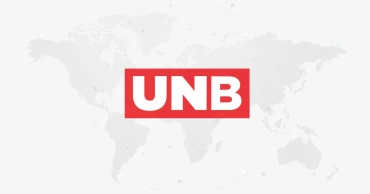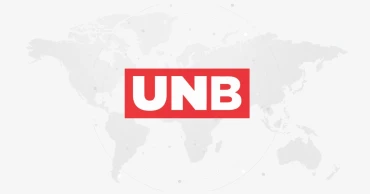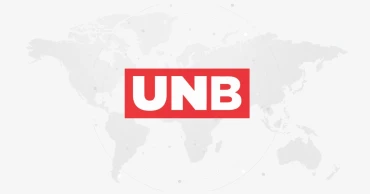Networking
Essential Skills to Learn Before Going to Study Abroad
Annually, thousands of students embark on a journey beyond their borders to pursue higher education. This adventure, although promising, can be laden with challenges. To navigate these waters successfully, students must arm themselves with a set of skills that transcend academic prowess. This guide delves into the top ten skills indispensable for a rewarding study abroad experience.
10 Essential Skills to Learn Before Going to Study Abroad
Independence: The Foundation of Overseas Education
Independence is the most significant transformation students encounter when studying abroad. It's a multifaceted skill encompassing self-reliance and responsibility. From basic chores like laundry and grocery shopping to more complex tasks like managing personal finances and making informed decisions, independence is critical. Developing problem-solving skills to tackle unexpected challenges is equally important, as it ensures students can handle various situations without constant guidance.
Read more: 10 Essential Life Skills for Teens to Learn before College
Research and Planning: Your Blueprint for Success
A thorough understanding of your destination's culture, legal system, and day-to-day life is vital. This means researching not just your academic institution and its curriculum, but also local customs, public transportation, and essential services. Effective planning helps mitigate culture shock and eases the transition, making your study abroad experience more enjoyable and less overwhelming.
Financial Literacy: Navigating Economic Waters Abroad
Mastering local banking systems and effective budgeting are paramount. Learn how to open a bank account, manage transactions, and understand currency exchange rates. Budgeting becomes a lifeline abroad; it involves setting realistic spending limits for various needs, including rent, food, transportation, and entertainment. Regularly tracking expenses helps avoid financial pitfalls and ensures a sustainable lifestyle.
Cross-Cultural Communication: Bridging the Gap
Adapting to a new culture requires a deep understanding of both verbal and non-verbal communication. This includes being aware of cultural norms in conversation, greetings, and gestures. Respectful and empathetic communication is key to forming meaningful relationships and avoiding misunderstandings. Embracing the local language, even at a basic level, can significantly enrich interactions and open doors to deeper cultural insights.
Adaptability and Empathy: The Heart of Cultural Immersion
The ability to adapt to new environments and empathize with different cultures is crucial. This skill is about more than just surviving; it's about thriving in a foreign setting. Adaptability means being open to new experiences, whether it’s adjusting to different academic structures or embracing unique social customs. Empathy allows you to appreciate and respect cultural differences, fostering a more inclusive and enriching experience.
2 years ago
5 Essential Skills to Make Money Online
The global outsourcing market has been on the rise for the last decade. The market has had a sharp growth in the past few years owing to the boom of work-from-home culture induced by the pandemic. The online marketplaces are highly dynamic. There are thousands of niches that hire millions of offshore workers. However, as many people are looking for jobs in the online outsourcing platforms, many beginners are struggling to get hired. Here’s a list of 5 soft and hard skills that can help freelancers to earn money online.
5 Essential Skills to Find Jobs on Outsourcing Platforms
Digital Marketing Skills
Digital marketing is essentially a sales job on an online platform. Skills like SEO, social media marketing, email marketing, content marketing, and paid advertising are in high demand on different gig platforms.
SEO and advertising require a good knowledge of content management and promotion strategies which are in high demand in today’s competitive market.
Read more: Top 10 Free Online Digital Marketing Courses
Content Creation Skills
Another highly demanded skill for making money online is content creation skills. Content creation can range from writing to video production, graphics design, and photography. Among these, graphics design and video production are in high demand.
Content creation requires high level of technical skills regardless of the niche. As a result, it generally pays a lot more than low-skilled high-volume gigs like web research and data entry online jobs.
Read more: YouTube Affiliate Marketing: Tips to build a successful channel
E-Commerce Skills
E-commerce is the future of shopping. Globally e-commerce has paved the way for many businesses to tap into target audiences beyond geographical boundaries.
E-commerce skills like online store setup, inventory management, payment processing, and customer service skills are in high demand on online marketplaces.
Besides these affiliate marketing and drop-shipping are promising niches to make stable online earnings. Nowadays, diverse local and international brands are offering commisons for selling products through affiliate links.
These specialized skills will not only help find jobs in the relevant niche but will also help if you plan to start your own e-commerce or drop shipping businesses.
Read more: Online Business: How to Get Started from Home?
Analytics and Data Science
Data Science jobs are in high demand globally because of the offshore nature and high pay structure of the industry. Technical skills like data science certification, Google Analytics certification, A/B Testing, etc are in high demand for business and platform growth.
Many organizations employ data scientists on an offshore or contractual basis making it a lucrative skill to earn money from the comfort of your home.
Read more: How to Be a Data Analyst from CSE or Non-CSE Backgrounds?
2 years ago
Career Networking Tips for Introverts
Networking is an essential component of career development. It enables professionals to establish connections, exchange ideas, and access new opportunities. However, introverts, who are naturally more reserved and prefer solitary activities, may find networking overwhelming. If an individual has an introverted personality by nature, it does not mean that he or she cannot excel at networking. Following the right strategies, introverts can leverage their unique strengths to develop meaningful networks, professional relationships, and advance their careers.
10 Powerful Career Networking Tips for Introverted Professionals
Embracing Small Group Settings
In small group settings, introverts can feel more at ease and less overwhelmed. These settings foster a more intimate and relaxed environment where individuals can engage in deeper conversations. Introverts can connect with like-minded individuals who share their interests and goals by attending industry-specific meetups, intimate conferences, or by joining professional organisations. The smaller group size allows for more meaningful interactions, making it easier for introverts to establish connections and build relationships.
Preparing an Elevator Pitch
Crafting an effective elevator pitch is essential for introverts to confidently introduce themselves in networking situations. An elevator pitch concisely summarises an individual's professional background, skills, and aspirations. By preparing and practising an elevator pitch, one can ensure that it effectively communicates one’s value proposition in a succinct manner.
It can enable an introvert to make a lasting impression on the new professionals he or she meets. Thus, an introverted professional can showcase expertise and make people interested in connecting with him or her.
Read more: How to improve your professional networking skills?
Utilising Online Platforms
Online networking platforms offer introverts a valuable opportunity to connect with professionals from the comfort of their own space. Platforms such as LinkedIn, Twitter, and industry-specific forums provide avenues for engaging in discussions, sharing insights, and expanding professional networks.
Introverts can showcase their expertise and thought leadership by participating in online conversations, which can lead to meaningful connections and potential collaborations. The advantage of online networking is that it removes the pressure of immediate face-to-face interactions, allowing introverts to showcase their strengths and build relationships at their own pace.
Attending Industry-specific Workshops and Conferences
Industry-specific conferences provide valuable opportunities for introverts to network with professionals in their fields. These events bring together industry experts, thought leaders, and like-minded individuals who are passionate about the same topics.
As an introvert, attending industry conferences allows one to stay updated on the latest trends, gain valuable insights, and connect with professionals who share one’s particular interests. During sessions, workshops, and networking breaks, introverts can approach others, initiate conversations, and foster connections based on shared interests or experiences.
Read more: Eid for Introverts: Finding Happiness and Fulfillment on Your Own
Industry-specific conferences serve as a platform for building a strong professional network and expanding one’s industry connections, that are particularly beneficial for introverts.
Attending Webinars
As many introverts feel shy in direct communication with people, webinars can be helpful for them to create professional networking. Like physical workshops, the webinars provide structured knowledge sharing as well as networking environments. Webinars usually focus on specific topics of interest, attracting professionals who share common aspirations or expertise.
By participating in webinars, asking thoughtful questions, and engaging with other attendees, introverts can expand their knowledge and make valuable connections. The shared learning experience creates a natural platform for interaction and collaboration, potentially leading to long-lasting professional relationships or mentorship opportunities.
Read more: Career Counseling: 10 Reasons you need a Career Coach
2 years ago
How to improve your professional networking skills?
Networking is one of the key secrets of getting hired, whether you are looking for employment as a fresher or considering a midlife career change. According to many career specialists, professional networking is the make-or-break aspect of job hunting. But does networking really matter that much? And if so, how to network in the right way? Read this article to get the answers.
What is Networking?
In simple words, networking is the process and steps that you follow to develop professional and social contacts. The development occurs through the exchange of information and ideas. People often confuse the idea that networking should only be done to get hired. In reality, there are far more useful and impactful uses of networking than to just get hired.
Whether it’s a career advancement aspect or getting a new perspective, networking can help you find the solution to different issues quite easily.
Read Considering a Career Change? 10 Questions to Ask Yourself
How professional networking skill can help your career?
As we were saying, the scope of networking is not limited to getting hired alone. In today’s word, the work-processes of diverse sectors and industries are being managed and influenced through professional networking, connections and metrics.
Networking helps you to stand out of the bunch. Having someone to vouch for you, or someone who understands your skills in a particular field can be of better help than a piece of CV.
Professional referencing is a common thing practiced in the big organizations. Someone with proven skills and reliable references will always hold the upper hand. Nowadays, most organizations do not believe in taking chances; rather they want to hire somebody who can deliver equal or more in return for what they are paying.
Read: Post Retirement Career Planning: How to pick your dream job?
The implications of networking go far beyond than getting hired. For example, creating a connection with one of your industry leaders will give you better industry insights than others. You can hardly find information about such practical intricacies in Google or data banks.
For instance, when you experience an issue regarding your employment or business, a highly experienced and knowledgeable person in that field might mentor you in the best way to overcome the problem.
When you put things into perspective, the benefits of having robust and relevant networking are limitless. We mention the term “relevant” here because not everyone will generate value for you.
While networking, it does not matter whether they are your senior or sub-ordinate. What matters is whether they have the potential for value generation. As long as there’s a mutual benefit at play, networking is always a good option regardless of the industry.
Read Top Qualities of Genuine People
4 years ago






